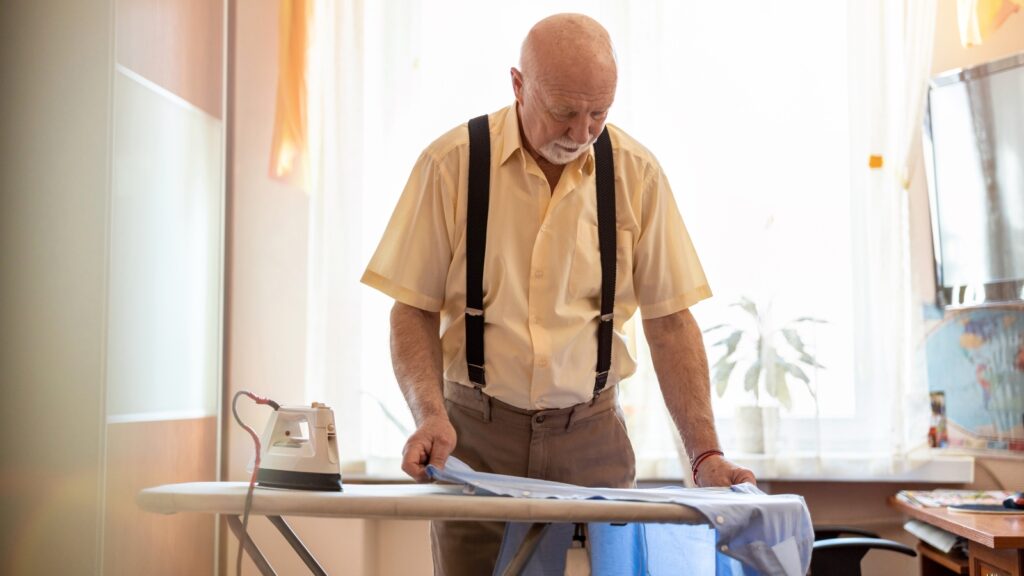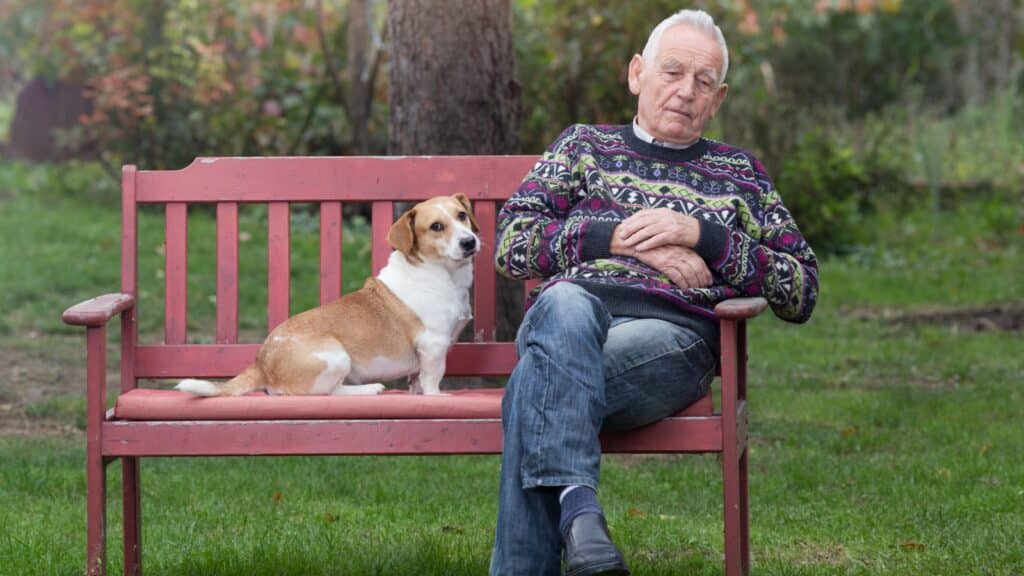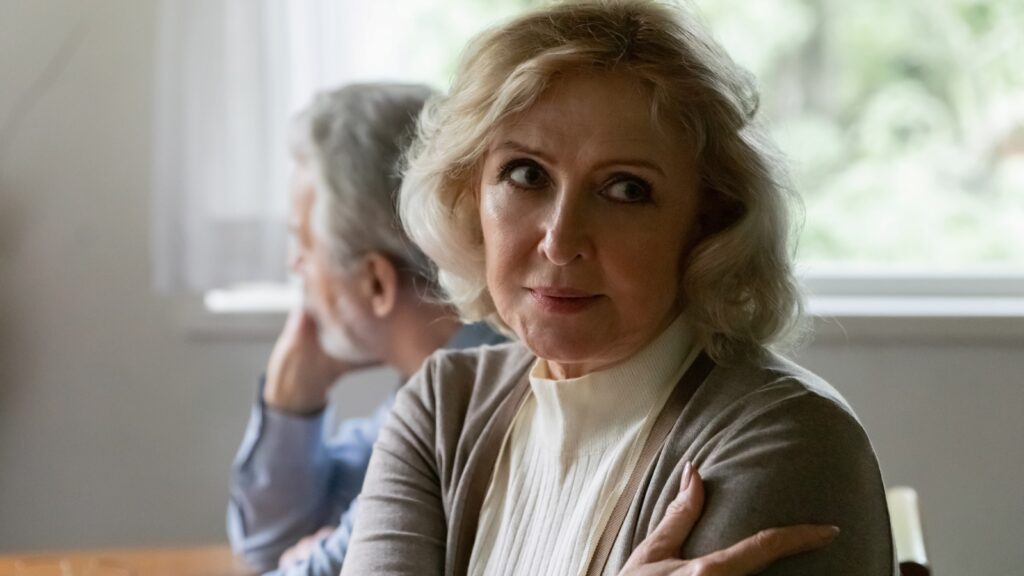In a societal landscape where the spotlight frequently shines on parenthood, opting out of having children becomes a noteworthy life choice. For specific individuals, this decision is a purposeful one, guided by personal preferences and individual priorities. Yet, as we navigate the consequences of opting for a child-free existence, we encounter a distinctive journey marked by its own considerations and potential challenges.
Potential Loneliness in Old Age

For those who opt not to have children, the absence of support and companionship in old age can elevate the risk of loneliness. The lack of adult children, who traditionally contribute to caregiving and social interaction, may intensify the complexities of the aging process. In 2023, The University of Michigan reported that one in three adults aged 50–80 (34%) experienced feelings of isolation in the past year, highlighting the relevance of social connections in mitigating the risk of loneliness among older adults.
No Growth Opportunities

Choosing not to have children can result in fewer opportunities for personal growth and development, often associated with the challenges and responsibilities of parenthood. The parenting journey can cultivate increased resilience, patience, and self-discovery. Individuals without children may need to actively seek these aspects of personal growth through alternative avenues, recognizing that the unique challenges of parenthood can serve as catalysts for valuable self-improvement and self-understanding.
Feeling Pressured

Experiencing a sense of pressure is common for individuals choosing not to have children, even without explicit comments. This sentiment can be particularly pronounced for women, escalating as they age and witness their peers embracing parenthood. Those who decide against parenting may be compelled to conform to societal expectations, potentially leading to a reluctant decision to have children. The internal and external pressures surrounding this choice can weigh heavily on individuals navigating the complexities of family planning.
No One to Inherit Your Estate

Not having children presents the drawback of lacking direct heirs to inherit one’s estate and assets. This circumstance can lead to intricate estate planning, prompting decisions about the distribution of possessions and wealth after one’s passing. According to Gentreo, an estimated $49 billion remains unclaimed in the United States, with approximately $3 billion returned to rightful owners each year, as the National Association of Unclaimed Property Administrators reported. These figures underscore the importance of thoughtful and comprehensive estate planning in the absence of direct descendants.
Reduced Understanding of Parenthood

Individuals without children may experience a diminished understanding of the joys, challenges, and sacrifices associated with parenthood. The absence of firsthand experience can limit empathy and make it challenging to fully relate to the experiences and priorities of friends and family who are parents. This lack of shared experience may create a gap in understanding, requiring a conscious effort to appreciate and connect with the unique aspects of parenthood that shape the lives of those in their social circles.
Lack of Family Legacy

Opting not to have children entails the potential absence of direct descendants to perpetuate one’s family name, traditions, and legacy. This can evoke apprehensions about the prospective diminishment of a family’s history and cultural heritage. According to the Pew Research Center, the familial dynamics of Millennials are distinct, with only three living with a spouse and child, diverging from the 40% of Gen Xers who shared similar arrangements at a comparable age. These shifting family structures underscore the evolving perspectives on family life within successive generations.
Missed Parenting Experiences

Opting not to have children entails preceding the distinctive and gratifying experiences of parenthood, including witnessing a child’s growth, guiding them through life, and celebrating their milestones. Those who choose not to become parents might ponder what they could have gained from these transformative and life-enriching experiences. The absence of these unique parental joys prompts individuals to reflect on the alternative paths their lives might have taken, emphasizing the trade-offs inherent in the decision not to embark on the journey of parenthood.
Potential Regret in Later Years

Individuals who choose not to become parents may encounter feelings of regret in later years, questioning the decision and pondering if it was the right choice. As they witness the experiences of friends and family who embraced parenthood, they might contemplate what they could have gained from that unique journey. The possibility of regret for not having children can linger, prompting reflections on the alternative paths their lives could have taken and the potential missed opportunities for familial connections and meaningful experiences.
Limited Social Connections

Opting not to have children may restrict opportunities for social connections, especially in communities where parenthood prevails. Childless individuals might encounter difficulty relating to their peers’ parenting experiences and priorities, potentially fostering feelings of isolation or exclusion. This divergence in lifestyle choices can inadvertently create social barriers, emphasizing the importance of understanding and acceptance within communities that predominantly embrace the norm of parenthood.
Unfulfilled Biological Instincts

Specific individuals who have chosen not to have children may find themselves wrestling with unfulfilled biological instincts to procreate. This internal conflict can evoke feelings of unmet needs, particularly when physical impulses clash with intentional life choices. Navigating the tension between innate biological drives and personal decisions can be complex and emotionally challenging for those who have consciously opted out of parenthood, highlighting the nuanced interplay between biology and individual life paths.
No One To Pass on Knowledge or Wisdom

Couples with children might hear comments about needing direct descendants to pass on their knowledge, wisdom, and life experiences. This may spark concerns that their accumulated wisdom and life lessons won’t be preserved or shared with future generations who could benefit from their insights. The absence of direct heirs to carry this intellectual and experiential legacy can prompt reflection on the potential impact of needing a direct line to pass down valuable knowledge and life lessons.
Need to Identify Meaning in Life

Self-identification becomes a nuanced exploration for individuals without the central role of being a parent. Without a prominent identity as a mother or father, childfree individuals often define themselves through various aspects of their lives. Their self-perception may be influenced by their career, personal interests, relationships, and community involvement. The absence of parental responsibilities allows for a diverse range of identities shaped by individual passions, achievements, and contributions, reflecting the multifaceted nature of personal fulfillment beyond parenting.
Finding a Partner Who Also Doesn’t Want Children

Choosing not to have children can make finding a partner with the same perspective challenging. Compatibility on parenthood becomes crucial, as divergent views may strain relationships. For individuals committed to a child-free lifestyle, navigating the dating pool can be more intricate, requiring careful consideration and communication to ensure alignment on this fundamental aspect of life planning. The quest for a like-minded partner underscores the importance of shared values and life goals in fostering successful and fulfilling relationships.
Too Much Free Time

Childrearing demands a significant time investment, with studies indicating that parenting two children requires an average of eight hours a day. This absence of parenting responsibilities doesn’t result in boredom or excess idle time for childfree adults, as one might expect. Instead, interviews for a book revealed that childfree individuals are engaged in various fulfilling activities. They invest their time in hobbies, pursue career goals, nurture personal relationships, and allocate more time to healthy meal preparation, exercise, and quality sleep. The childfree lifestyle enables a rich and fulfilling use of time outside of parenting responsibilities.
Lack of Family Traditions

Choosing not to have children can lead to missing out on establishing and perpetuating family traditions and rituals commonly associated with raising a family. The absence of little ones to pass down customs, celebrate holidays, and share generational stories may leave some individuals feeling a sense of cultural discontinuity within their family unit. The decision not to have offspring can impact the transmission of shared experiences and traditions that often strengthen family bonds and foster a sense of continuity across generations.
Increased Need for Social Support

Childfree adults often exhibit a strong sense of individualism and independence, which can be advantageous in many aspects of life. However, it’s crucial to recognize the importance of cultivating close ties in times of need. Parents naturally establish these connections as they require assistance with babysitting and childcare tasks. Notably, when a parent is in need, there tends to be a swifter response to help, driven by the presence of an innocent, dependent child. Balancing independence with a supportive social network remains crucial for child-free individuals.
Possible Estrangement from Family

Opting out of parenthood can occasionally strain relationships or lead to estrangement from family members who may have anticipated or desired grandchildren or nieces/nephews. The decision not to have children can introduce tensions within extended family dynamics, potentially influencing the individual’s relationships with relatives. Divergent expectations and societal norms surrounding family structures can contribute to the complexities of these interactions, requiring open communication and understanding to navigate and preserve familial bonds despite differing choices in parenthood.
Judgment from Society

Men and women who intentionally opt out of parenting may confront societal judgments or stigma. The prevailing expectation that having children is a universal desire can lead to criticism and labeling, with individuals choosing otherwise being branded as “selfish” and admonished for allegedly missing out on essential aspects of life. The decision to forgo parenthood challenges societal norms, and those who make this choice may need to navigate and counteract the external pressures and judgments that can arise from deviating from traditional expectations.
19 Grim Realities of Dating After 50 That Are Often Overlooked

19 Grim Realities of Dating After 50 That Are Often Overlooked
26 Things That Will Be Extinct Because Millennials Refuse to Buy Them

26 Things That Will Be Extinct Because Millennials Refuse to Buy Them
24 Outdated Slang Terms You Absolutely Shouldn’t Be Using Anymore

24 Outdated Slang Terms You Absolutely Shouldn’t Be Using Anymore
25 Hardest Parts About Getting Older That No One Ever Talks About

25 Hardest Parts About Getting Older That No One Ever Talks About




